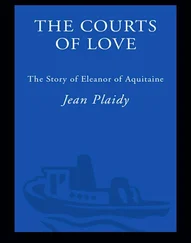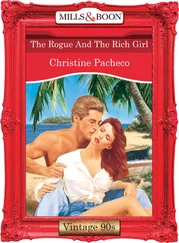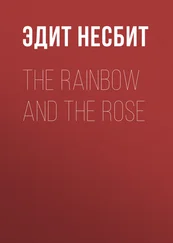Виктория Холт - The Thistle and the Rose
Здесь есть возможность читать онлайн «Виктория Холт - The Thistle and the Rose» весь текст электронной книги совершенно бесплатно (целиком полную версию без сокращений). В некоторых случаях можно слушать аудио, скачать через торрент в формате fb2 и присутствует краткое содержание. Жанр: Исторические любовные романы, на английском языке. Описание произведения, (предисловие) а так же отзывы посетителей доступны на портале библиотеки ЛибКат.
- Название:The Thistle and the Rose
- Автор:
- Жанр:
- Год:неизвестен
- ISBN:нет данных
- Рейтинг книги:4 / 5. Голосов: 1
-
Избранное:Добавить в избранное
- Отзывы:
-
Ваша оценка:
- 80
- 1
- 2
- 3
- 4
- 5
The Thistle and the Rose: краткое содержание, описание и аннотация
Предлагаем к чтению аннотацию, описание, краткое содержание или предисловие (зависит от того, что написал сам автор книги «The Thistle and the Rose»). Если вы не нашли необходимую информацию о книге — напишите в комментариях, мы постараемся отыскать её.
The Thistle and the Rose — читать онлайн бесплатно полную книгу (весь текст) целиком
Ниже представлен текст книги, разбитый по страницам. Система сохранения места последней прочитанной страницы, позволяет с удобством читать онлайн бесплатно книгу «The Thistle and the Rose», без необходимости каждый раз заново искать на чём Вы остановились. Поставьте закладку, и сможете в любой момент перейти на страницу, на которой закончили чтение.
Интервал:
Закладка:
He heard that his father had sent to Edinburgh Castle and ordered that the sword which Robert the Bruce had carried at Bannockburn should be brought to him, that he had said: “As it served the Bruce then, so shall it serve me now.”
And he had ridden into battle on the fleetest horse in Scotland, the Bruce’s sword in his hand.
James believed then that Sauchieburn would haunt him all his life; and it was true that his dreams were even now disturbed by the sound of the trumpets and the clash of spears. They had not allowed him to enter the thick of the fight — nor had he any heart for it — but he sat his horse fearfully watching, as he had in those days in Stirling Castle, for a man of noble bearing who might be his father.
And when they had come to him and told him that the enemy was routed and the victory was his he had felt the childish tears well into his eyes and he wanted to cry out: How can I rejoice when my victory is my father’s defeat?
“Where is my father?” he demanded.
But no one knew.
“It would seem, my lord, that he left the battlefield before the end. He may well have escaped to the Forth and left Scotland in one of Sir Andrew Wood’s ships which were waiting there to help him in such an emergency.”
“I must know what has happened to my father,” James insisted.
He asked that he might be alone. Then he knelt in the privacy of his tent and prayed that his father might be safe, that they might meet and all differences between them be dissolved.
He was in Stirling Castle when Lord Drummond and others of the rebel lords brought a stranger to him. This was one of the most handsome men James had ever seen — tall, with an air of fearlessness.
James went forward eagerly holding out his hands.
“Sir,” he cried, “are you my father?”
When the man put his hands over his eyes to hide his emotion, Drummond said sourly: “Nay, my lord, this is Sir Andrew Wood. He has come ashore because his friends have hostages of ours for his safekeeping. He has been sheltering our enemies on his ships in the Forth.”
Sir Andrew removed his hand and said firmly: “I am not Your Highness’s father, but I am his true servant, and I shall continue to be the enemy, until I die, of those who are disloyal to him.”
Drummond said: “If you know where the King is, it would be well for you to say.”
“I know not,” was the answer.
“But some of my father’s men have found refuge in your ships?” James put in eagerly.
“That is so, my lord.”
“Are you sure my father is not among them?” asked the boy pleadingly.
“Yes, my lord. Would to God I could tell you that he is safe with us, but he is not and I know not where he is. If I knew I would tell you; but I fear the worst, and I trust that one day will see the hanging of the traitors who have cruelly murdered him.”
“Murdered!” cried James, his face turning pale with horror.
But the lords had seized Andrew Wood and hustled him from the apartment.
Murder! pondered James, and then the remorse began.
Some days passed before he learned what had really happened to his father at Sauchieburn, and he felt sick with horror when the tale was recounted. His father had left the battlefield before the end, being advised by his generals that he should escape to the Forth where, while there was yet time, he could find shelter with Wood’s fleet. To stay would be to die in the field; to escape would be to live to fight another day.
A few miles from the battlefield, near a millstream, he met a woman with a pitcher which she had come to fill. Seeing the horse and rider making straight for her, and fearing they would trample her under foot she dropped the pitcher and ran. The pitcher rolling under the horse’s hoofs so startled the terrified animal that it shied and stumbled, its weary rider was thrown and lay unconscious in the dust while the horse went galloping on.
The story had been slowly pieced together by the people who had witnessed it. James heard how workers had come from the mill and carried the King inside, how he recovered consciousness and when the miller’s wife — a forceful woman — had asked his name, answered: “James Stuart is my name, and this morning I was your King.”
“Saints above us!” the miller’s wife had cried. “We have the King under our roof. And dying maybe. A priest! Fetch a priest for the King.”
She dashed out of the mill and began to run to the priest’s house, but before she reached it she saw a rider coming from the direction of Sauchieburn. “Stop!” she cried. “The King is in our mill. He is sorely hurt and needing a priest.”
The man drew up and said: “I am a priest. Lead me to him.”
The miller’s wife led him back to the mill, shouted for a boy to take his horse and then took him into the mill where the King was lying on the floor.
“I am a priest,” said the man, kneeling beside the King.
“Welcome,” murmured the King.
“Are you mortally wounded?”
“I think not, but I wish to confess my sins and to ask pardon for the faults of a lifetime.”
Then, so quickly that none of those about him realized what was happening until it was done, the man drew his sword and, saying, “This will give you pardon,” plunged it into the King’s body.
Withdrawing it, he walked out of the mill, took his horse from the boy who held it, mounted and rode away. And none ever knew his name.
Young James was in his apartment at Stirling Castle when the nobles came to him. He was astonished by their solemn looks.
“What news?” he asked.
Lord Drummond was kneeling before him as he heard the shout which resounded through the room: “Long live the King!”
James recoiled. “My father… ?” he began.
“Sire, you no longer have a father. Long live James IV of Scotland and the Isles.”
It was then he heard the story of his father’s end; but he could not share their joy. He could only tell himself that never again would he look into the faces of handsome strangers and wonder whether at last he was face-to-face with his father.
Already he seemed to feel the crown weighing heavily on his head. His father defeated by his enemies and murdered by them! Not until that moment had he understood how they had involved him in their treacherous conflict, and there was deep sorrow in understanding. His father had died and it might seem that he himself bore some responsibility for that death.
I believe I shall never know complete peace again, he told himself.
In the weeks that followed his accession, so great had been his remorse that he had even forgotten Margaret. Night and morning he had prayed for the soul of his father in the Chapel-Royal at Stirling Castle.
“How can I atone for my father’s death?” he demanded of his confessor.
“Pray… pray for forgiveness,” was the answer.
But he found only brief comfort in prayer, and soon afterward he took to wearing an iron belt about his doublet, which was heavy and caused him great discomfort.
But he felt happier wearing it. It was a way of doing penance for the murder of his father.
That had happened long ago and one could not grieve forever. He had quickly discovered that it was pleasant to be a king. His friends, important men such as Argyle, Hailes, Lyle and Hume, were eager for him to enjoy life and to leave tiresome state matters to them.
“Why,” they said, “you are the King; and living as you did in Stirling Castle, what chance did you have of enjoying your life?”
He changed; he was no longer retiring, but discovered himself to be a high-spirited boy, and there was hunting and hawking over the glorious countryside; there were balls and banquets to be arranged; dancing to be watched and indulged in. His father was buried in state at Cambuskenneth Abbey and lay there with his wife, so there was nothing more his son could do for him, except to wear the iron belt now and then to remind himself and the world that he still regretted the manner in which his father had died.
Читать дальшеИнтервал:
Закладка:
Похожие книги на «The Thistle and the Rose»
Представляем Вашему вниманию похожие книги на «The Thistle and the Rose» списком для выбора. Мы отобрали схожую по названию и смыслу литературу в надежде предоставить читателям больше вариантов отыскать новые, интересные, ещё непрочитанные произведения.
Обсуждение, отзывы о книге «The Thistle and the Rose» и просто собственные мнения читателей. Оставьте ваши комментарии, напишите, что Вы думаете о произведении, его смысле или главных героях. Укажите что конкретно понравилось, а что нет, и почему Вы так считаете.










